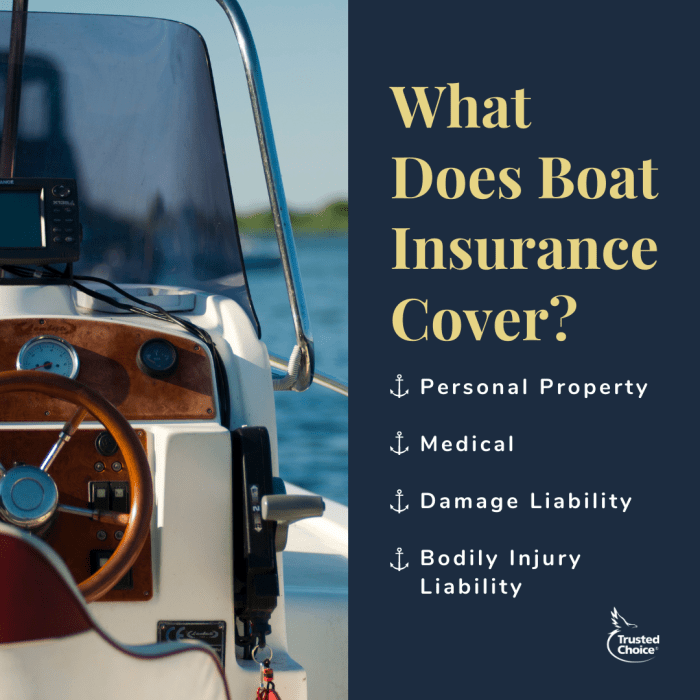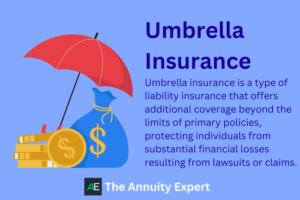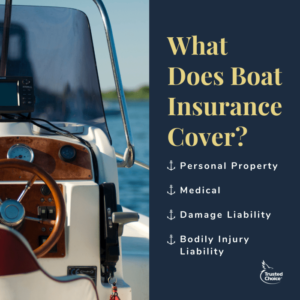
Insurance for boat rental businesses is an essential component that safeguards both operators and their clients from the unpredictable nature of water activities. The marine environment, while exhilarating, presents unique risks that can lead to significant financial repercussions. By understanding the importance of specialized insurance coverage, boat rental businesses can navigate potential liabilities and enhance their operational resilience.
From accidents on the water to equipment damage, the need for appropriate insurance cannot be overstated. This overview will delve into the various types of insurance available for boat rentals, the crucial factors to consider when choosing policies, and provide insights that empower rental business owners to make informed decisions.
Importance of Insurance for Boat Rental Businesses

Insurance coverage is crucial for boat rental businesses, serving as a safety net that protects against unforeseen incidents. Without adequate insurance, businesses expose themselves to significant financial risks that could jeopardize their operations. In this industry, where equipment is costly and liability can be extensive, the right insurance policy becomes essential for safeguarding both assets and reputation.Boat rental businesses face a variety of potential risks and liabilities.
These can include accidents that occur on the water, damage to the rental vessels, injuries to customers, and even environmental impacts from spilled fuel or waste. Each of these scenarios poses financial threats that can be detrimental to business sustainability. For instance, if a rented boat capsizes due to a customer’s negligence, the rental company could be held liable for injuries sustained by passengers and damage to property.
Examples of Insurance in Action
Real-life incidents highlight the critical role that insurance can play in protecting boat rental businesses. Below are several scenarios where insurance coverage made a difference:
-
In an incident in Florida, a boat rental company faced a lawsuit when a customer’s negligence led to a collision with a jet ski. The insurance policy covered legal fees and settlement costs, which could have otherwise bankrupted the business.
-
A rental company in California suffered a significant loss when a storm damaged several boats. Their comprehensive insurance coverage allowed them to recover repair costs, ensuring they could quickly resume operations.
-
In another case, a customer accidentally spilled fuel into the water while refueling a rented boat. The environmental cleanup costs were covered by the company’s liability insurance, preventing a financial disaster.
These examples illustrate how insurance not only protects against direct losses but also shields businesses from reputational damage and helps maintain customer trust during challenging circumstances.
Types of Insurance Relevant to Boat Rental Businesses
Insurance is a crucial aspect of running a successful boat rental business. Understanding the various types of insurance available can help business owners protect their assets, manage risks, and provide peace of mind to their customers. Below are the different types of insurance that are particularly relevant to boat rental operations.
Watercraft Insurance
Watercraft insurance is fundamental for boat rental businesses, as it covers damage to the rental boats and liability for injuries or damages caused by the boats to third parties. This type of insurance ensures that business owners are protected against unforeseen events such as accidents, sinking, or theft. It typically includes:
- Physical Damage Coverage: Covers repairs to a boat if it’s damaged, whether from an accident or natural disasters.
- Liability Coverage: Protects against legal claims arising from bodily injury or property damage to others caused by the boat.
- Medical Payments: Covers medical expenses for injuries sustained by the boat passengers or crew.
“Watercraft insurance acts as a safety net allowing boat rental businesses to operate with confidence.”
Supplemental Insurance Options
Supplemental insurance options are available to enhance coverage beyond standard watercraft insurance. These options are tailored to address specific risks associated with boat rentals, including:
- Equipment Rental Insurance: Covers rental equipment on the boats, such as fishing gear and safety equipment.
- Employee Liability Insurance: Provides protection against claims made by employees injured on the job.
- Environmental Liability Insurance: Covers costs associated with pollution or environmental damage caused by the operation of the boats.
These supplemental coverages help ensure that businesses are fully protected against a range of potential liabilities.
Umbrella Insurance
Umbrella insurance is designed to provide an extra layer of liability protection that goes beyond the limits of standard policies. For boat rental businesses, this insurance is particularly valuable as it can cover:
- Excess liability claims that exceed primary policy limits.
- Legal fees and expenses associated with lawsuits.
Having umbrella insurance means that in the event of a catastrophic incident, business owners won’t face devastating financial consequences from lawsuits or claims that significantly exceed their standard policy limits.
Travel Insurance for Customers
Travel insurance is an important consideration for customers renting boats. It provides coverage for unforeseen circumstances that may disrupt their travel plans, such as:
- Trip Cancellation: Reimburses customers if they have to cancel their trip due to illness or emergencies.
- Emergency Medical Coverage: Covers medical expenses incurred while on the trip.
- Lost or Stolen Belongings: Protects against the loss of personal items while traveling.
By offering travel insurance, boat rental businesses can enhance customer satisfaction and reduce disputes that may arise from trip disruptions.
Vision Insurance for Business Owners and Employees
Vision insurance is vital for business owners and employees in the marine industry, ensuring their visual health is maintained, which is crucial for operating boats safely. This type of insurance provides:
- Routine Eye Exams: Regular check-ups to detect vision problems early.
- Discounts on Eyewear: Savings on glasses and contact lenses, promoting overall eye health among workers.
Maintaining good vision is essential in a business where safety is paramount; vision insurance contributes to a safer work environment and enhances productivity.
Considerations When Choosing Insurance Policies
Selecting the right insurance policy for a boat rental business is crucial for safeguarding assets and ensuring operations run smoothly. With various providers and coverage types available, business owners must evaluate their specific needs to make informed decisions. Understanding the factors that influence insurance choices can significantly impact the security and financial stability of a rental operation.
Checklist of Factors to Consider
When evaluating insurance options, keep the following factors in mind to ensure comprehensive coverage for your boat rental business:
- Type of Coverage: Determine if the policy covers physical damage, liability, and loss of income.
- Policy Limits: Assess the maximum payout amounts to ensure they align with the value of your assets and potential liabilities.
- Deductibles: Review deductible amounts, as higher deductibles typically lower premiums but increase out-of-pocket expenses during a claim.
- Coverage for Equipment: Confirm that any rented or owned equipment, such as trailers and safety gear, is included in the policy.
- Liability Coverage: Ensure sufficient liability coverage to protect against accidents or injuries to customers while using the rented boats.
- Geographical Restrictions: Check if the policy has limitations on where the boats can be operated, especially concerning specific water bodies.
- Additional Riders: Look for options to add extra coverage for specific needs, such as weather-related incidents or theft.
- Provider Reputation: Investigate the insurance company’s reputation for claims handling and customer service.
Comparison of Insurance Providers
Different insurance providers offer various policies tailored specifically for boat rental businesses. Researching and comparing these offerings is essential to find the best fit for your operational needs.
- Provider A: Known for competitive rates and extensive liability coverage options, making it suitable for mid-sized rentals.
- Provider B: Offers specialized policies for high-value vessels, ideal for luxury boat rentals.
- Provider C: Provides flexible payment plans and additional coverage options for seasonal businesses.
It’s advisable to request quotes from multiple providers and compare not just the premiums, but also the breadth of coverage, exclusions, and the claims process to make an informed choice.
Assessing Coverage Amount for Different Business Sizes and Types
Choosing the right amount of coverage depends on the size and type of your boat rental operation. Factors such as the number of boats, their value, and the scale of your business significantly influence insurance needs.
“Coverage should reflect the full value of your fleet and include potential liabilities based on customer usage.”
For instance, a small operation with three rental boats may require less coverage compared to a larger business with a fleet of ten high-end vessels. Here’s a general guideline for assessing coverage:
- Small Business: Coverage should equate to the total value of boats and equipment, plus liability coverage of at least $1 million.
- Medium Business: Consider coverage that includes the value of boats, equipment, and increased liability, possibly around $2 million.
- Large Business: A comprehensive policy covering all assets and liabilities, potentially exceeding $3 million, depending on business scale and operations.
Common Exclusions in Boat Rental Insurance Policies
Understanding common exclusions in boat rental insurance policies is vital to avoid any unexpected financial burdens. Here’s a summary of typical exclusions that operators should be aware of:
- Wear and Tear: Policies do not cover damages resulting from regular use and maintenance issues.
- Intentional Acts: Any damages caused by intentional acts or illegal activities are not covered.
- Operator Negligence: Damages resulting from negligence by the operator can lead to denial of claims.
- Weather-Related Incidents: Some policies may exclude coverage for damages caused by severe weather unless specifically included.
- Uninspected Boats: Boats that have not undergone required inspections or are not compliant with safety regulations may not be covered.
Being aware of these exclusions helps boat rental operators tailor their coverage appropriately and avoid gaps that could lead to significant financial loss.
Final Review

In conclusion, securing the right insurance for boat rental businesses is not just about compliance; it’s about protecting your livelihood and ensuring peace of mind for both you and your customers. By understanding the diverse types of coverage available and carefully assessing your needs, you can safeguard your business against unforeseen events, ensuring smoother sailing in the challenging waters of the rental industry.
Question & Answer Hub
What happens if a rented boat is damaged?
The insurance policy typically covers damages, but renters may be responsible for deductibles or specific exclusions depending on the policy terms.
Is personal liability coverage included?
Not always; personal liability coverage may need to be added separately depending on the insurance provider and policy specifics.
Can I insure different types of watercraft?
Yes, many insurance providers offer customizable policies that can cover various types of watercraft under one umbrella.
Do customers need their own insurance when renting?
While it’s not mandatory, it’s a good practice for customers to have their own insurance for added protection during rental periods.
How often should I review my insurance policy?
It’s advisable to review your insurance policy annually or after significant changes to your business operations to ensure adequate coverage.





